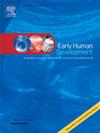手术坏死性小肠结肠炎父母临终决策的关键因素:德尔菲研究
IF 2
3区 医学
Q2 OBSTETRICS & GYNECOLOGY
引用次数: 0
摘要
背景/目的在严重的坏死性小肠结肠炎(NEC)早产儿中,手术可能是生存的唯一选择。然而,积极治疗的结果并不总是符合婴儿的最佳利益,这促使父母和医生考虑将姑息治疗作为一种替代方案。本研究旨在确定家长在做决定时优先考虑的关键因素,作为开发决策支持工具的初步步骤。方法三个荷兰家长小组(没有NEC/早产经验,有经验但没有损失,以及NEC/早产导致的损失)被要求对31个基于文献和自我建议的决策因素进行评分。在两轮德尔菲研究中,各因素按1到9的等级评定。在指导委员会的共识会议上,一个或多个小组在第二次德尔菲轮之后达到6分或更高中值的因素进行了讨论。结果66名参与者完成了两轮德尔菲。在最后一轮之后,9个因素被排除,包括父母的身心健康、经济状况和宗教信仰。在其他22个因素中,指导委员会决定了15个关键因素作为决策支持工具的基础。最重要的因素包括死亡的可能性、短期和长期的身体后果以及未来的独立。此外,父母还会受到医生的意见以及责任感和希望感的影响。结论本研究强调了荷兰父母面临手术性NEC的15个决定因素。这些见解将为决策支持工具的开发提供信息,帮助父母做出明智的临终决定。本文章由计算机程序翻译,如有差异,请以英文原文为准。
Key factors in parental end-of-life decision making for surgical necrotizing enterocolitis: A Delphi study
Background/objectives
In severe cases of necrotizing enterocolitis (NEC) in preterm neonates, surgery may be the only option for survival. However, the consequences of active treatment are not always in the infant's best interest, urging parents and physicians to consider palliative care as an alternative. This study aims to identify key factors parents prioritize when making this decision, as a preliminary step towards developing a decision support tool.
Methods
Three Dutch parent panels (without experience with NEC/preterm birth, with experience but without loss, and with loss due to NEC/preterm birth) were asked to rate 31 literature-based and self-suggested decision factors. Factors were rated on a scale of 1 to 9 in a two-round Delphi study. Factors that reached a median score of six or higher by one or more panels after the second Delphi round were discussed in a consensus meeting of the steering committee.
Results
Sixty-six participants completed both Delphi rounds. Nine factors were excluded after the final round, including parental physical and mental health, finances, and religion. Of the other 22 factors, the steering committee decided upon 15 key factors to serve as a base for the decision support tool. Most important factors included chance of death, short- and long-term physical consequences, and future independence. Additionally, parents were influenced by doctors' opinions and feelings of responsibility and hope.
Conclusion
This study highlights fifteen decision factors for Dutch parents facing surgical NEC. These insights will inform the development of a decision support tool aiding parents in making informed end-of-life decisions.
求助全文
通过发布文献求助,成功后即可免费获取论文全文。
去求助
来源期刊

Early human development
医学-妇产科学
CiteScore
4.40
自引率
4.00%
发文量
100
审稿时长
46 days
期刊介绍:
Established as an authoritative, highly cited voice on early human development, Early Human Development provides a unique opportunity for researchers and clinicians to bridge the communication gap between disciplines. Creating a forum for the productive exchange of ideas concerning early human growth and development, the journal publishes original research and clinical papers with particular emphasis on the continuum between fetal life and the perinatal period; aspects of postnatal growth influenced by early events; and the safeguarding of the quality of human survival.
The first comprehensive and interdisciplinary journal in this area of growing importance, Early Human Development offers pertinent contributions to the following subject areas:
Fetology; perinatology; pediatrics; growth and development; obstetrics; reproduction and fertility; epidemiology; behavioural sciences; nutrition and metabolism; teratology; neurology; brain biology; developmental psychology and screening.
 求助内容:
求助内容: 应助结果提醒方式:
应助结果提醒方式:


